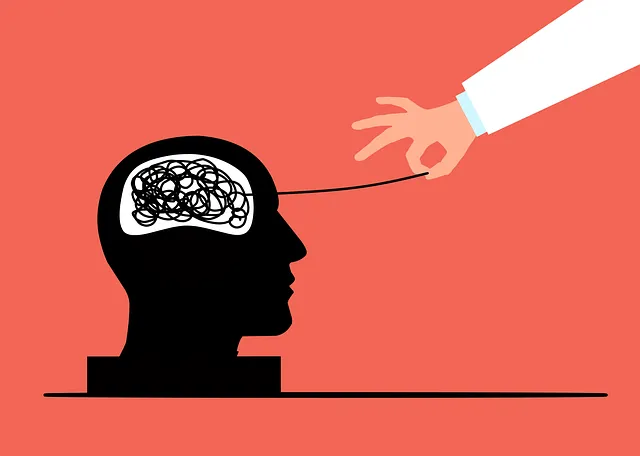Mental wellness journaling, guided by the Parker Approach, is an accessible self-care tool for tracking emotions, identifying triggers, and gaining awareness of mental health. By documenting thoughts in a structured journal, individuals uncover insights into their minds, leading to improved coping strategies and enhanced well-being. This practice encourages introspection, fostering understanding of emotions and thinking patterns. It serves as a stepping stone towards self-improvement for those seeking mental health services, including depression prevention, and incorporates compassion cultivation and risk management planning. The Parker Approach simplifies access to Kaiser healthcare's mental health support, empowering individuals to take charge of their wellness. Journaling can be enhanced with various formats and community sharing, promoting stress management and advocacy.
Mental wellness journaling is a transformative self-care practice, offering individuals a dedicated space to explore thoughts and emotions. This article guides you on harnessing its power for improved mental health. We’ll delve into ‘Understanding Mental Wellness Journaling’ and provide insights into accessing mental health services via the Parker Approach with Kaiser. Additionally, practical tips will equip you to begin and sustain your journaling journey. Discover how this simple yet effective tool can enhance your mental wellness, especially when combined with structured support like the Parker method for Kaiser patients.
- Understanding Mental Wellness Journaling: A Powerful Self-Care Tool
- The Parker Approach: Accessing Mental Health Services through Kaiser
- Practical Tips for Starting and Maintaining Your Journaling Practice
Understanding Mental Wellness Journaling: A Powerful Self-Care Tool

Mental wellness journaling is a powerful self-care tool that allows individuals to track their emotional state, identify triggers, and cultivate awareness about their mental health. By documenting thoughts, feelings, and experiences in a structured journal, people can gain valuable insights into their minds, leading to improved coping strategies and enhanced overall well-being. This practice encourages introspection, fostering a deeper understanding of one’s emotions and thinking patterns.
For those seeking guidance on how to get mental health services through Kaiser or dealing with issues like depression prevention, journaling can serve as a stepping stone towards self-improvement. Compassion cultivation practices and risk management planning for mental health professionals are also beneficial when incorporated into journaling routines. This simple yet effective method enables individuals to take charge of their mental wellness, promoting resilience and a more positive outlook on life.
The Parker Approach: Accessing Mental Health Services through Kaiser

The Parker Approach offers a unique and accessible way to navigate mental health support within the Kaiser healthcare system. This method focuses on empowering individuals to take charge of their mental wellness journey. By providing clear guidance, it simplifies the process of accessing professional services, ensuring that members of the Kaiser community can receive the care they need.
Through this approach, individuals learn effective communication strategies to engage with their healthcare providers, fostering a collaborative environment for mood management. It encourages proactive participation in one’s mental health care, which is crucial for addressing emerging challenges and promoting overall well-being. Public awareness campaigns development based on these principles can further educate and encourage community members to prioritize their mental health.
Practical Tips for Starting and Maintaining Your Journaling Practice

Starting a journaling practice for mental wellness is an accessible and powerful tool available to everyone, including Kaiser members seeking support through Parker how to get mental health services. Here are some practical tips to help you begin and maintain this rewarding habit. Firstly, set aside a dedicated time each day or week for your journal; consistency is key. Even just 15 minutes can make a significant difference. Create a peaceful environment free from distractions to encourage mindfulness and reflection. Consider using prompts or guided exercises to get started, especially if you’re new to journaling. These can be found online or in various mental health resources, including those offered by Kaiser.
To keep your practice sustainable, experiment with different formats and mediums. You might find drawing, collage, or even audio recording alongside written words enhances your experience. Remember, there’s no right or wrong way to journal; it should be a personal and enjoyable process. Incorporate aspects of burnout prevention and mental health policy analysis and advocacy by reflecting on stressors and exploring strategies for resilience. Regularly reviewing your progress can help you identify patterns, triggers, and coping mechanisms that work best for you. Engaging in this practice can also foster a sense of community; share excerpts (with consent) with friends or join journaling groups to gain diverse perspectives, all while promoting stress management workshops organization.
Mental wellness journaling is a simple yet profound tool for self-care, offering a dedicated space to process thoughts and emotions. By incorporating practical tips and approaches like the Parker method for accessing mental health services through Kaiser, individuals can unlock the benefits of this practice. Whether it’s reflecting on daily experiences or exploring feelings, consistent journaling fosters better mental wellness. Start your journey today and take control of your emotional well-being.


